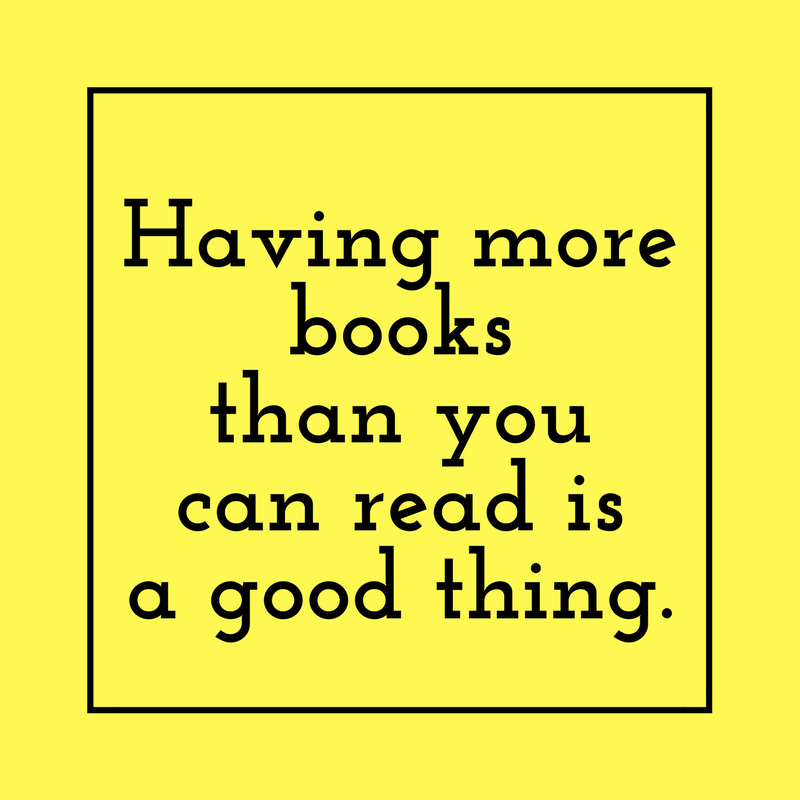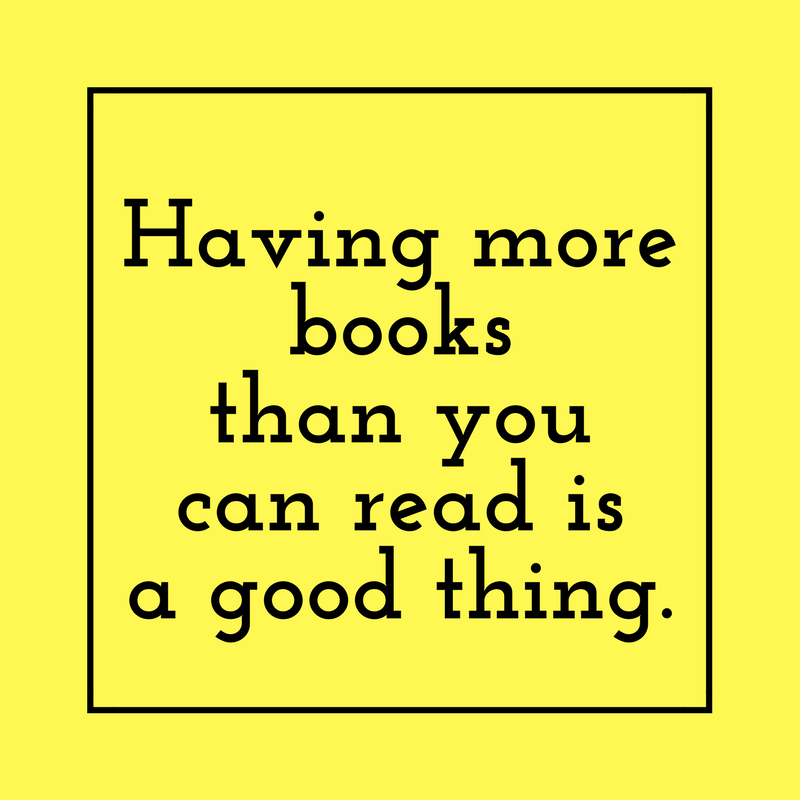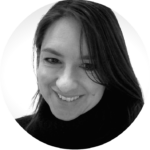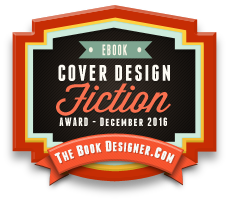Have you made New Year’s Resolutions for how to get through that ridiculously long To Be Read list?
Because mine will take me the next hundred years to get through. If I did nothing else.
But you guys, I have excellent news.
And I know you’re going to be excited about it because:
1. A while ago I shared a page with you that will calculate how long it’s going to take you to read your To Be Read list.
(Which led to the discovery that a lot of you need more than one lifetime to finish your current list. Some of you need more than a superhuman live-long-as-the-elves lifetime. )
2. A while ago we also learned the word tsundoku:
(n.) the act of leaving a book unread after buying it, typically piling it up together with other such unread books.
(Which, from your responses, a LOT of you can relate to.)
But GUESS WHAT?
Having more books than you can read is a good thing.

Author and statistician Nassim Nicholas Taleb makes the argument that having more books than you can read isn’t a sign of failure, but a way to “stay intellectually hungry and perpetually curious.” (Jessica Stillman, inc.com)
In his book, The Black Swan, he writes:
A private library is not an ego-boosting appendage but a research tool. Read books are far less valuable than unread ones. The library should contain as much of what you do not know as your financial means, mortgage rates, and the currently tight real-estate market allows you to put there. You will accumulate more knowledge and more books as you grow older, and the growing number of unread books on the shelves will look at you menacingly. Indeed, the more you know, the larger the rows of unread books. Let us call this collection of unread books an antilibrary. (The Black Swan, by Nassi Nicholas Taleb.)
What Taleb is saying is that having unread books reminds you of all the things you don’t know.
Which keeps your brain primed for learning and keeps you humble. Two excellent things.
And I can see the truth in this.
An antilibrary is a beautiful thing.
For non-fiction books, all those unread tomes speak of endless opportunities to stretch your mind in new ways, to make new connections between things you didn’t connect before.
For fiction, it’s like dozens—or hundreds—of rolled up maps of places you haven’t visited yet. Of people you haven’t met, of experiences you’ll never get in real life, but could get through reading.
Do you know how much better this makes me feel about the two cookbooks I have about bread baking that I’ve barely touched?
Well, I’ll tell you: It makes me feel like perfectly kneaded bread, rising in a warm spot.
Because now I don’t just see the cookbooks and feel guilty for not having used them, I see them as portals into that mysterious, magical world of people who can bake bread and make it come out less like a brick, and more like a cloud.
And do you know how much better it makes me feel about my stupid-long, ever-growing fiction To Be Read list?
It makes me feel like I’m standing in some sort of Hall of Doors, where each door leads somewhere different, and I might not end up opening them all, but I could.
And all the doors are there waiting for me, reminding me that there are so many things I haven’t experienced in life, and so many things I can still learn.
Reminding me I don’t know everything. Remind me I have so many ways left to grow.
Which is much better than just feeling guilty that I don’t read more often.
So, from now on, I’ll choose to see my big set of unread books as an antilibrary.
How about you? Does it help to think of your unread books this way? Or are they still just unread book?




You forgot to mention that reading also protects your brain from developing Alzheimer’s.
I loved the fact that you followed up all this fantastic information with a competition to win 52 paperbacks. Made me laugh! Was that deliberate?
I need many, many lifetimes for my TBR pile. The worst thing that could’ve happened to me was getting access to ebooks. The paper book pile (which takes in three rooms) was large enough before I even started on electronic ones. At least you can’t see the ebook ‘mountain’.
Nancy T – I hate to be the bearer of bad news, unfortunately despite being voracious readers all their lives, my Mum and Auntie still got Alzheimer’s. : (
I have 100’s of paper books and hundreds of e-books. So, I haven’t read them all as of now. Funny, I will be 70 yrs. on 4/9 and I hope to finish them before I croak-but realistically will not. Who cares!! I LOVE books, and I LOVE to read!!
I love the way you describe my ever growing TBR pile. What a wonderful way to look at it. Yo definitely changed my mind about this ever growing pile. You have definitely opened my eyes. Thank You so much. Have a great Day!
Good to know my ginormous book pile is a good thing. I figured so.
I love my ” anti library “, and it’s a really big one! I enjoy going through it and reread the titles to remind me which book I may want to read next! Just love books!
Love the term ‘antilibrary’, now have a term to refer to my hundreds of books and ebook when confronted wt my hubby’s snide comments.. I ran out of physical room for all my books, thank goodness for my Nook! I have, however, read the majority of my books, probably because I had to purchase them, which gave me time to actually read them. With my Nook, oh my, I now have the amazing option of stockpiling so many wonderful reads which I plan to get to….I promise! ^-^
9